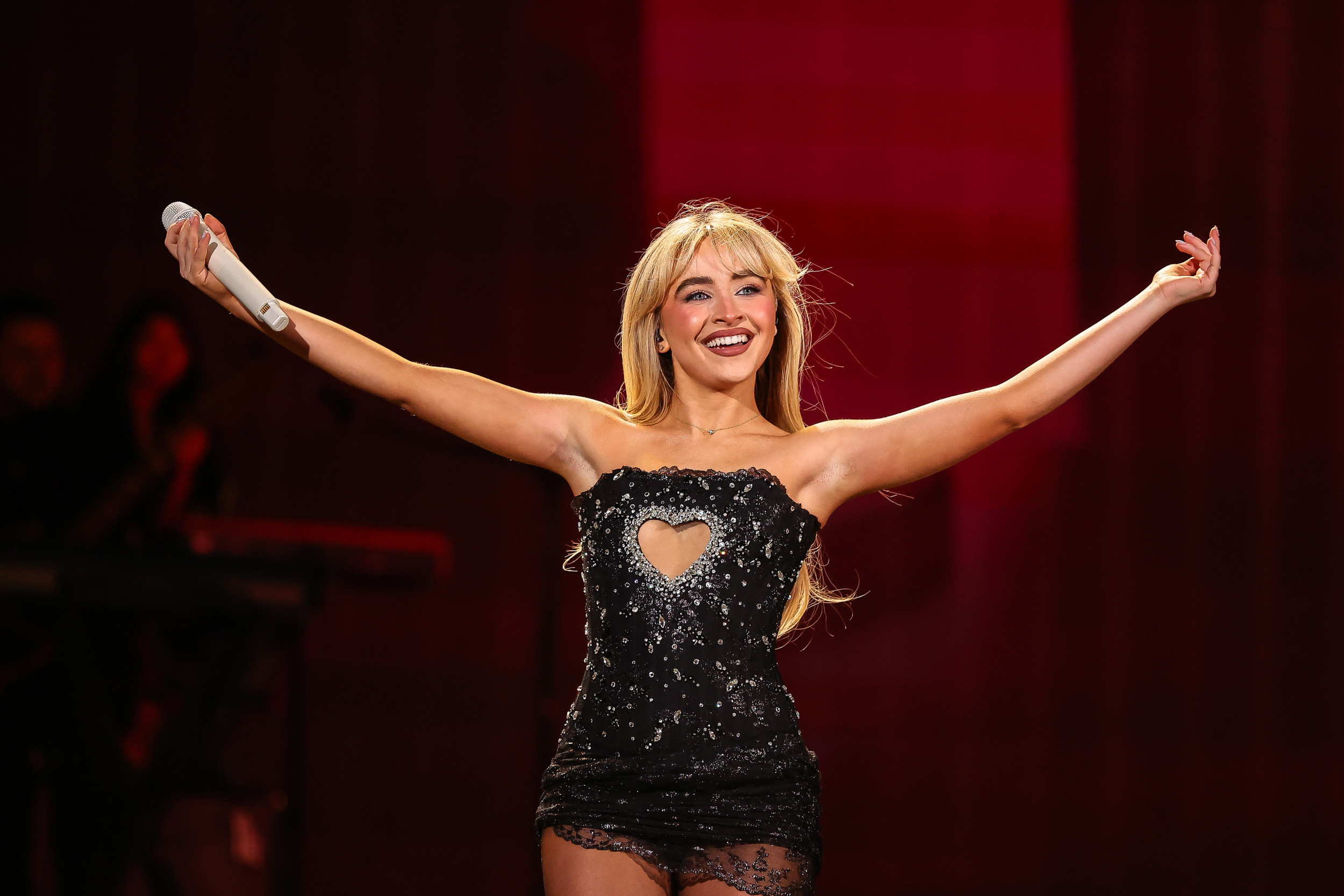Pop star Sabrina Carpenter has taken over the charts with the likes of “Espresso” and “Please Please Please,” and people online have a theory as to why her songs have been performing so well.
“Espresso” was released on April 11 as the lead single from her upcoming sixth studio album, Short n’ Sweet, and peaked at number four on the Billboard Hot 100. Following the song’s commercial success, Carpenter released “Please Please Please” almost a month later on June 6. She also dropped an accompanying music video starring her boyfriend, Oscar-nominated actor Barry Keoghan.
With both songs going viral on TikTok and doing well on music charts, people have started to wonder if her success is organic.
“Like this if Spotify automatically plays her music for you too I’m trying to see something,” the account @mazzypopstar posted on X (formerly Twitter) about Carpenter.
While the account no longer exists, before its deletion, the post had been viewed over 42 million times.
Hector Vivas/TAS23/Getty Images for TAS Rights Management
Newsweek emailed a spokesperson for Carpenter and Spotify for comment Monday.
People took to the comments to claim that they were being served her songs via the autoplay feature, even if they were listening to a completely different genre of music.
“I was literally listening to reggaeton and then this song came on, I was so confused like no shade or hate but I don’t listen to her or even follow her on spotify [skull emoji],” one person commented.
“I think her music is not bad but it’s so annoying hearing it after every album or song I play [crying emoji],” said another.
“My husband was listening to a podcast in the car and it played please, then espresso back to back when it was over instead of the next podcast episode,” someone else wrote.
A fourth added: “My baby was listening to Peppa Pig’s lullaby and this song played immediately after.”
However, not everyone online believes this theory, with one person writing: “some of y’all gotta be lying in the comments it’s no way sabrina is doing this LMFOAJSKSKMAS.”
“‘Sabrina Carpenter is an industry plant she plays after every song [two eye roll emoji]’ You are on a big list at Spotify HQ labelled ‘gay 25-34,'” someone else posted on the platform.
X user @lippredicts wanted to test the theory, so played a variety of songs from different genres to see if one of Carpenter’s hit tracks would pop up.
“I tested out Spotify’s autoplay feature with 11 random songs to see if they’re playing Espresso and PPP after every song. here are the results,” they wrote alongside a screen recording that showed them playing various songs. Not once did one of Carpenter’s songs appear. At the time of writing, the post had been viewed 1.2 million times.
I tested out Spotify’s autoplay feature with 11 random songs to see if they’re playing Espresso and PPP after every song. here are the results: pic.twitter.com/CkozS7yx6H
— lip predictions (@lippredicts) June 17, 2024
They added: “tried to dig deeper into this and while I get a lot of espresso, I could not get PPP [Please Please Please] to play a single time no matter what I tried. it only played pop songs that I’m personally playing often. anyone that’s getting PPP after every track was already streaming PPP a lot.”
According to Spotify, “when you reach the end of an album, playlist, or selection of songs, Spotify automatically plays similar songs so the music never stops.”
There’s also Spotify’s Discovery Mode, a tool that the streaming service says allows musicians and labels to push specific songs in exchange for a lower royalty rate.
“With Discovery Mode, artists and labels identify songs that are a priority for them, and our system will add that signal to the algorithms that determine personalized listening sessions. This signal increases the likelihood of the selected songs being recommended, but does not guarantee it,” the website reads.
“But it only works if fans love it too. We take note when a listener isn’t engaging with a song — including those in Discovery Mode — and factor this in when determining what to recommend in the future. It’s all about harmony.”
Uncommon Knowledge
Newsweek is committed to challenging conventional wisdom and finding connections in the search for common ground.
Newsweek is committed to challenging conventional wisdom and finding connections in the search for common ground.
